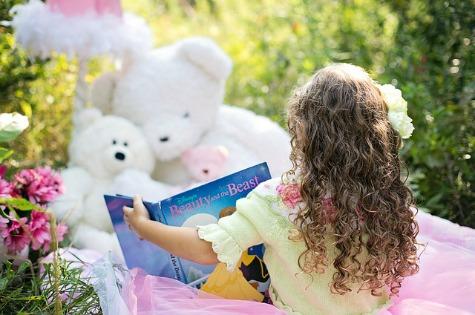The power of speech for children isn’t just about communication. It plays a critical role in their social skills, behaviour and the development of their self-esteem, according to Child Psychiatrist Dr Kaylene Henderson.
Dr Henderson says while there are normal developmental milestones for children when it comes to speaking, parents can encourage a child’s language and speech development by:
- Talking to your child from birth. Children start to understand the language we use long before they can use it themselves. The more children hear and see us speak with them, the quicker they will be able to learn how to talk themselves.
- Responding to your baby’s coos and babbling. Pause and take turns listening and talking – you are starting to teach your child important social skills.
- Playing simple games. Playing games, such as peek-a-boo is a great opportunity for face-to-face language-based interaction with your child.
- Listening patiently to your child. Look at them and give them as long as they need to respond. Make sure you acknowledge your child when he/she is talking and answer their questions to reinforce their efforts.
- Reading books out loud. Make this part of your daily routine and encourage a love of reading.
- Asking questions, telling stories and singing songs together.
- Modelling your child’s speech and grammar. When your child is talking in single words or short sentences, repeat his comment or request as a full sentence. For example, if your child says “milk” you can respond with, “Can I please have some milk? Yes of course.’’ You can do the same thing when it comes to grammar. Don’t criticise your child, but instead model the correct grammar or use of pronouns.
Dr Henderson, who is a professional development provider for Community Kids Childcare and Early Learning Centres, says educators can also help harness the power of speech.
Community Kids Childcare and Early Learning Centres spokewoman and educator Freya Lucas says research shows the best way to support speech and language is to talk with children frequently and naturally.
“In a childcare setting, children are surrounded by many different examples of speech and language, both from their peers, and from their educators,” says Ms Lucas.
Ms Lucas says educators use many strategies to support children’s language development including:
- Reading and sharing books
- Following children’s lead – for example, a child may point at a banana and say “na-na”. Educators will respond with a smile, and say something like “Yes! Bananas are yummy aren’t they? I had banana on my porridge this morning.”
- Narrating the everyday moments, such as nappy change time, transitions, and outdoor play. Educators use speech to describe to the children what is happening in their world.
- Responding to children – when children cry, shake their head, or point to something, educators will respond with speech, providing the building blocks for future language learning.
About Community Kids Childcare & Early Learning Centres
Community Kids Childcare & Early Education Centres offer high quality, affordable long day care, before and after school care and vacation care. The centres provide children a safe, happy and healthy environment, which recognises the special needs and talents of individual children through the employment of caring, qualified educators and to ensure that all aspects of each child’s developmental needs form the basis of our programs. Community Kids is located in Queensland, New South Wales, Victoria, South Australia and Western Australia. www.communitykids.com.au
About Dr Kaylene Henderson
Dr Kaylene Henderson (MBBS FRANZCP Cert C&A Psych), Child Psychiatrist, is a medically trained child health and parenting specialist with membership in the Royal Australian and New Zealand College of Psychiatrists, the Australian Association for Infant Mental health and Faculty of Child and Adolescent Psychiatry (Qld). She is passionate about sharing practical, research based advice to help parents feel more calm and confident while raising kind, resilient and socially and emotionally healthy children. www.drkaylenehenderson.com








 Agree (0)
Agree (0) Disagree (
Disagree (









__small.png)










